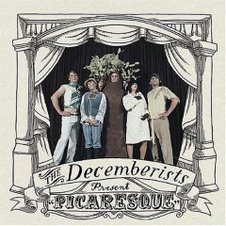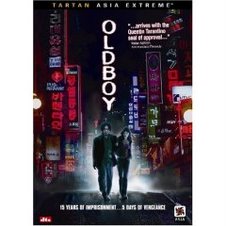A couple of us recovery-type bloggers have a little e-mail "Gratitude Group." The incomparable annegb got it started, and it's really small and kind of erratic.
It provides such a lift to my day when I get an e-mail with the subject "gratitude." One of the things that I really like about it is how personal it is. I would like to expand it a little bit, but I don't know how we could do that without losing its intimacy.
Is this something that could work as a blog? Why or why not?
Thursday, September 28, 2006
Wednesday, September 20, 2006
Dear DKL: I love LDSelect.org, but...
I love the LDSElect aggregator. I will probably put a link here soon, if Ned says it's OK. I love being able to customize the boxes so I see VNF in Box 1. Yay VNF! I know it's in box 4 as a default, but self-delusion is highly underrated.
I have one teensy problem though. I tried to create a login, and I never was sent a password. I tried to create the login again, and it won't let me, because it says I'm already signed up. This may be true, but a login without a password is entirely useless.
I wouldn't mind so much, because my savings are "remembered" on my main computer, but I use other computers, too. I don't want to have to recustomize them all. Plus, my shameless self-promotion (VNF in Box 1! Huzzah!) has no effect if I'm not logged in when I set it up.
So, dear D., if you would be so kind as to let me know what to do to get my password, I would be pickled tink, as Ned would say.
I have one teensy problem though. I tried to create a login, and I never was sent a password. I tried to create the login again, and it won't let me, because it says I'm already signed up. This may be true, but a login without a password is entirely useless.
I wouldn't mind so much, because my savings are "remembered" on my main computer, but I use other computers, too. I don't want to have to recustomize them all. Plus, my shameless self-promotion (VNF in Box 1! Huzzah!) has no effect if I'm not logged in when I set it up.
So, dear D., if you would be so kind as to let me know what to do to get my password, I would be pickled tink, as Ned would say.
Wednesday, September 13, 2006
What Mormonism Left Me
It's tough on those of us who don't believe. I know, I know, we get to sleep in on Sundays and spend our extra 10% with abandon, but it's hard to turn your back on something that helped mold who you are.
Ambivalent is the word. I feel pulled in two directions. On the one hand, I can't imagine my life without the overpowering architecture of Mormonism looming over it. On the other, I don't like a lot of the shadows that it cast over my life.
Like a lot of Utah Mormons, my family was organized around the church almost exclusively. Almost all our friends were from the church, and almost all our free time was spent there or at other church activities. Between Scouts, Young Women, Relief Society and my parents' callings, church occupied more time than anything besides school for me or work for my parents.
When I was an adolescent, my father was called to be a mission president in a foreign country. (Incidentally, I think it's insulting the way they ignore the spouses of Mission Presidents, but that's a rant for another day.) Instantly our whole life was changed.
This came as quite a shock. First of all, we were a solidly middle class family in a middle class Utah ward and my dad was fairly young. He was nowhere near retirement age, had no assets to speak of besides our house, and was a Young Men's advisor. The highest calling he had ever held was 1st counselor in the Bishopric.
Nevertheless, my parents both quit their jobs with no prospects of getting them back and sold our house at way below market value--talk about a motivated seller. I left my school and all the friends I had accumulated since kindergarten and moved to a foreign country, where a new house, a new language, and a new life awaited me.
Needless to say, it was the best thing that ever happened to me. I was exposed to so many new people and places and experiences that I never could have had back in Utah. At the same time, being a Mormon and living in a different country always made me the outsider looking in. Adolescence isn't easy for most kids, but I think Mormon adolescents experience a special kind of hell. When you're just trying to figure out what's right and wrong, it doesn't help to have the constant pressure to be perfect weighing on your every decision. I wanted to be able to have fun, and not worry about whether I was procrastinating the day of my repentance.
It was hard fitting in as the outsider, and all the Mormon pressure weighed on me a lot; consequently or unrelatedly, I went through alternating cycles of depression and elation. I would be happy (due in large part to my new, exotic locale and friends) and then, suddenly, depressed that I was so unworthy and faithless. Like manic depression, Mormonism seemed to allow me to reach greater heights (by magically transforming my life through the move) but also reach new lows by drumming into me how unworthy and faithless I was.
I remember at one point casually asking my mom what would happen if I were to die accidentally. She said they'd almost certainly be released immediately and sent home. It sounds weird, but one of the factors that argued against suicide in my adolescent brain was not screwing up this sweet gig for my parents.
I hated going to Seminary and I disliked Church, but I loved hanging out with the office missionaries. My many friendships with the Elders passing through had no religious overtones; we were just normal friends who all happened to be in a foreign country for an overtly religious reason. Again, the Church brought all these great people into my orbit, but I didn't receive anything of value to me from the religious end of the Church, just the administrative end.
During one summer break during high school, my dad wanted me to do a mini-mission for a couple weeks. I had a blast doing typical missionary things, throwing rotten fruit off balconies, almost getting killed on my bicycle, constant practical joking living with three other guys, but I didn't enjoy the religious part. I fell asleep during scripture study, after lunch, and at church. I tried hard to follow the rules, but I didn't get anything out of it. I recently came across a letter one of the sister missionaries in my zone wrote me when I left after the two weeks. It said, joking of course, that I should be ashamed because I didn't give away a single Book of Mormon and that they all knew I was an apostate. (I know, she was very prescient.)
Similarly, I loved my real mission (a few years later) for all the friends I made on it, both Elders and families we met, and for all the places I would never have been able to visit without it. On the religious end, I struggled with faith and doubt and guilt, and ultimately, I came to hate the petty bureaucracy that seemed to dominate the Mission leadership. I had "spiritual experiences," but they seemed unrelated to the heavy-handed rules and dull lessons that the Church imposed.
So I find myself most deeply shaped by experiences that are uniquely Mormon, yet I am completely without faith in the positive influence of the very institution that made them possible. Mormonism turned out great for me--it let me live several years abroad and expanded my horizons--but it also made me more miserable than I can express. That is why I am ambivalent about my Mormonism; it made me who I am today, but it also made me an outsider. I'm too deeply marked by my upbringing and life experiences to fit in with others, but I can never be part of a believing Mormon community either.
I guess that's why I can't leave it alone, because it never leaves me.
Ambivalent is the word. I feel pulled in two directions. On the one hand, I can't imagine my life without the overpowering architecture of Mormonism looming over it. On the other, I don't like a lot of the shadows that it cast over my life.
Like a lot of Utah Mormons, my family was organized around the church almost exclusively. Almost all our friends were from the church, and almost all our free time was spent there or at other church activities. Between Scouts, Young Women, Relief Society and my parents' callings, church occupied more time than anything besides school for me or work for my parents.
When I was an adolescent, my father was called to be a mission president in a foreign country. (Incidentally, I think it's insulting the way they ignore the spouses of Mission Presidents, but that's a rant for another day.) Instantly our whole life was changed.
This came as quite a shock. First of all, we were a solidly middle class family in a middle class Utah ward and my dad was fairly young. He was nowhere near retirement age, had no assets to speak of besides our house, and was a Young Men's advisor. The highest calling he had ever held was 1st counselor in the Bishopric.
Nevertheless, my parents both quit their jobs with no prospects of getting them back and sold our house at way below market value--talk about a motivated seller. I left my school and all the friends I had accumulated since kindergarten and moved to a foreign country, where a new house, a new language, and a new life awaited me.
Needless to say, it was the best thing that ever happened to me. I was exposed to so many new people and places and experiences that I never could have had back in Utah. At the same time, being a Mormon and living in a different country always made me the outsider looking in. Adolescence isn't easy for most kids, but I think Mormon adolescents experience a special kind of hell. When you're just trying to figure out what's right and wrong, it doesn't help to have the constant pressure to be perfect weighing on your every decision. I wanted to be able to have fun, and not worry about whether I was procrastinating the day of my repentance.
It was hard fitting in as the outsider, and all the Mormon pressure weighed on me a lot; consequently or unrelatedly, I went through alternating cycles of depression and elation. I would be happy (due in large part to my new, exotic locale and friends) and then, suddenly, depressed that I was so unworthy and faithless. Like manic depression, Mormonism seemed to allow me to reach greater heights (by magically transforming my life through the move) but also reach new lows by drumming into me how unworthy and faithless I was.
I remember at one point casually asking my mom what would happen if I were to die accidentally. She said they'd almost certainly be released immediately and sent home. It sounds weird, but one of the factors that argued against suicide in my adolescent brain was not screwing up this sweet gig for my parents.
I hated going to Seminary and I disliked Church, but I loved hanging out with the office missionaries. My many friendships with the Elders passing through had no religious overtones; we were just normal friends who all happened to be in a foreign country for an overtly religious reason. Again, the Church brought all these great people into my orbit, but I didn't receive anything of value to me from the religious end of the Church, just the administrative end.
During one summer break during high school, my dad wanted me to do a mini-mission for a couple weeks. I had a blast doing typical missionary things, throwing rotten fruit off balconies, almost getting killed on my bicycle, constant practical joking living with three other guys, but I didn't enjoy the religious part. I fell asleep during scripture study, after lunch, and at church. I tried hard to follow the rules, but I didn't get anything out of it. I recently came across a letter one of the sister missionaries in my zone wrote me when I left after the two weeks. It said, joking of course, that I should be ashamed because I didn't give away a single Book of Mormon and that they all knew I was an apostate. (I know, she was very prescient.)
Similarly, I loved my real mission (a few years later) for all the friends I made on it, both Elders and families we met, and for all the places I would never have been able to visit without it. On the religious end, I struggled with faith and doubt and guilt, and ultimately, I came to hate the petty bureaucracy that seemed to dominate the Mission leadership. I had "spiritual experiences," but they seemed unrelated to the heavy-handed rules and dull lessons that the Church imposed.
So I find myself most deeply shaped by experiences that are uniquely Mormon, yet I am completely without faith in the positive influence of the very institution that made them possible. Mormonism turned out great for me--it let me live several years abroad and expanded my horizons--but it also made me more miserable than I can express. That is why I am ambivalent about my Mormonism; it made me who I am today, but it also made me an outsider. I'm too deeply marked by my upbringing and life experiences to fit in with others, but I can never be part of a believing Mormon community either.
I guess that's why I can't leave it alone, because it never leaves me.
Wednesday, September 06, 2006
Conversion Story, Part 2, in which I Figure Things Out
Baptism became the elephant in the living room very early in the How to Be a Mormon instructional process. It wasn’t a decision I took lightly. Joining the Mormons is not like joining Toastmasters.
My now ex-husband claimed neutrality on the matter. “Do what you want. But you really ought to just do it or not. Decide.” He had a point.
I had some serious reservations. Baptism would require me to make major lifestyle changes. Beer and pot would have to go.[1] I had quit smoking just before I got pregnant with the baby mentioned in Part 1, so tobacco cigarettes were no longer a concern. However, coffee and tea were problematic. At least nobody seriously expected me to only eat a little meat during the winter.
The Joseph Smith story was not one that sat well with me. Angels and gold plates that the angel took back when the translation was done. Riiiiiiiiiiiight. How convenient!
The doctrine of baptism for the dead did not make the decision any easier. Why couldn’t I just forego baptism in this life and wait for the next one? It offered the best of both worlds: I could have eternal life later, without giving up my entrenched word of wisdom vices. The elders responded that my refusal to be baptized would inform my spirit in the post-mortal world; having refused the ordinance once, I would not be likely to accept later.
On the plus side, I liked church. I felt like I could be part of something bigger than myself. I liked the idea of making a commitment to a path that looked like a good one. Those plusses made me take the issue seriously. I didn't feel like the negatives made baptism an obvious non-starter.
By the time I brought up the subject of being baptized to the elders, I had been thinking about it for a couple of weeks, but I’d never really prayed about it. When they assured me I was ready, I decided to decide.
That night, after I went to bed, I prayed. I wasn’t really sure where to start, or what to ask, so I asked God about the issue that was MOST problematic for me - if the Book of Mormon was really a scripture like the Bible. I didn’t ask about anything else; asking that part was difficult enough. The words caught in my chest and pressed on it like a weight on the inside. It was hard to catch my breath. I choked them out anyway.
I heard a very clear “Yes.” Not audible, but the thought, fully formed, along with the very strong impression that baptism was the right thing to do. The weight lifted. I could breathe again. I felt relieved.
The elders came back a couple of days later. I asked them when we could schedule my baptism. They practically jumped out of their chairs to pull out their planners. We set the baptism for after the next missionary zone conference, in less than ten days, so Jake could be there to confirm me.
[1] Well, beer at least. There was that whole “useful herbs” part of the Word of Wisdom that might act as an escape clause for giving up pot.
Part 3: Nobody mentioned that I needed to bring a towel...
My now ex-husband claimed neutrality on the matter. “Do what you want. But you really ought to just do it or not. Decide.” He had a point.
I had some serious reservations. Baptism would require me to make major lifestyle changes. Beer and pot would have to go.[1] I had quit smoking just before I got pregnant with the baby mentioned in Part 1, so tobacco cigarettes were no longer a concern. However, coffee and tea were problematic. At least nobody seriously expected me to only eat a little meat during the winter.
The Joseph Smith story was not one that sat well with me. Angels and gold plates that the angel took back when the translation was done. Riiiiiiiiiiiight. How convenient!
The doctrine of baptism for the dead did not make the decision any easier. Why couldn’t I just forego baptism in this life and wait for the next one? It offered the best of both worlds: I could have eternal life later, without giving up my entrenched word of wisdom vices. The elders responded that my refusal to be baptized would inform my spirit in the post-mortal world; having refused the ordinance once, I would not be likely to accept later.
On the plus side, I liked church. I felt like I could be part of something bigger than myself. I liked the idea of making a commitment to a path that looked like a good one. Those plusses made me take the issue seriously. I didn't feel like the negatives made baptism an obvious non-starter.
By the time I brought up the subject of being baptized to the elders, I had been thinking about it for a couple of weeks, but I’d never really prayed about it. When they assured me I was ready, I decided to decide.
That night, after I went to bed, I prayed. I wasn’t really sure where to start, or what to ask, so I asked God about the issue that was MOST problematic for me - if the Book of Mormon was really a scripture like the Bible. I didn’t ask about anything else; asking that part was difficult enough. The words caught in my chest and pressed on it like a weight on the inside. It was hard to catch my breath. I choked them out anyway.
I heard a very clear “Yes.” Not audible, but the thought, fully formed, along with the very strong impression that baptism was the right thing to do. The weight lifted. I could breathe again. I felt relieved.
The elders came back a couple of days later. I asked them when we could schedule my baptism. They practically jumped out of their chairs to pull out their planners. We set the baptism for after the next missionary zone conference, in less than ten days, so Jake could be there to confirm me.
[1] Well, beer at least. There was that whole “useful herbs” part of the Word of Wisdom that might act as an escape clause for giving up pot.
Part 3: Nobody mentioned that I needed to bring a towel...
Subscribe to:
Comments (Atom)



